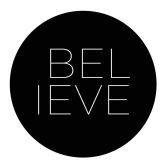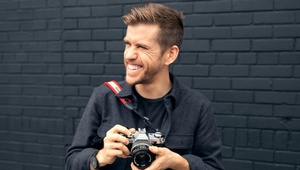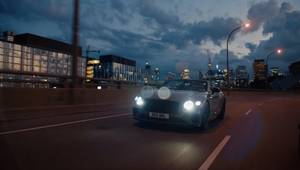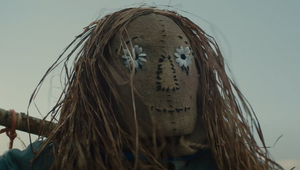
Finding a Filmmaking Rhythm with Hanna Maria Heidrich

As an artistic child, Hanna Maria Heidrich knew she’d find herself a place in the creative arts, but it was originally painting which captured her eye. When visiting her friends’ ateliers, however, it was the social, collaborative working environment that she realised she’d be missing out on. After finding filmmaking, it was clear that her artistic eye and love of working with others would be a perfect fit for the industry, and she’s been there ever since.
With many campaigns under her belt, for the likes of Ikea, Audi and Stella Artois – to name a few – being a female director hasn’t stopped Hanna Maria from pitching to work on car campaigns, landing spots for Porsche, Toyota, Nissan and many more. Her determination to defy the odds and make a name for herself within this category has solidified her standing as a prolific name within the industry.
Her latest project is her work on Sky’s latest series ‘SOULS’, which was created by her husband Alex Eslam. Having witnessed the series’ inception and with a vested interest in conveying the story in the most authentic way possible, she was keen to bring her own creative flair into the storytelling.
The director, however, doesn’t stop there. She’s on the board of DRCT – a directors association championing a fairer pitching culture for directors – alongside her peers Claas Ortmann, Elisha Smith-Leverock, and Micky Suelzer. As a female director, Hanna Maria has been keen to work on projects that may have been harder to land in the past, such as car campaigns, and is keen to shine a light on stories which have fully fleshed-out female protagonists.
She sits down with LBB’s Nisna Mahtani to talk about her journey.
LBB> Do you remember the moment when you first realised you wanted to be a director?
Hanna Maria> When I was a teenager, there was always drawing and painting – I was pretty obsessed with it, to be honest. Then there was photography. But there were older friends of mine who studied art and they showed me their atelier, saying ‘oh that’s my university now.’ I thought that was so lonely! So that was an epiphany for me, I like working with people, the collaborative spirit and creating something together.
After that, I came to filmmaking. I released it combines my interests, it’s a collaborative process and you work with a lot of different kinds of people. As a director, you have the best of both worlds, phases where you need to be alone to get inspiration but when you execute the work, you have amazing professionals around you. So, it isn’t the typical story of me messing around with my dad’s Super 8 camera, or anything like that!
LBB> Did you look to anyone for inspiration when you first started out?
Hanna Maria> Floria Sigismondi did some amazing music videos at that time and I was pretty blown away by her work as a late teenager! The work was so imaginative, and playful, creating worlds for people as if she was talking to her audience personally. It would put me in a completely different world – I felt immersed in it.
Also, in the past, there weren’t as many female directors, so at the time she was someone whose work I liked and she naturally happened to be a female director. So yes, her work definitely inspired me at the very beginning.
LBB> Can you share some of the ways in which you honed your skills as a director?
Hanna Maria> I wanted to apply to Filmakademie Baden-Württemberg from the beginning, and it was mandatory to have two years of training or industry experience before you applied. So, I was lucky to work as an assistant director early on and so working next to different directors, I learnt a lot. When I did apply, I was still quite young at 21 years old and I was shocked that I got in because I thought I had a bit more time to develop. Nonetheless, it was a great experience! I do have to say though, I did think I missed out a little on the craft of directing actors, it was more about the atmosphere there, so I wanted to see where the long tradition of directing actors came from.
I decided to take a year off from film school and go to Drama Centre in London, which has now closed, but that was the best thing I could have done – I was suddenly forced into classes with actors and I had to figure out what to do. It was that feeling of helplessness getting bad direction, when you don’t know what to do. That experience of changing perspective and leaving the technical side behind meant I focused on the long traditional craft of theatre directing, and it helped me gain that knowledge for when I went back to film school.
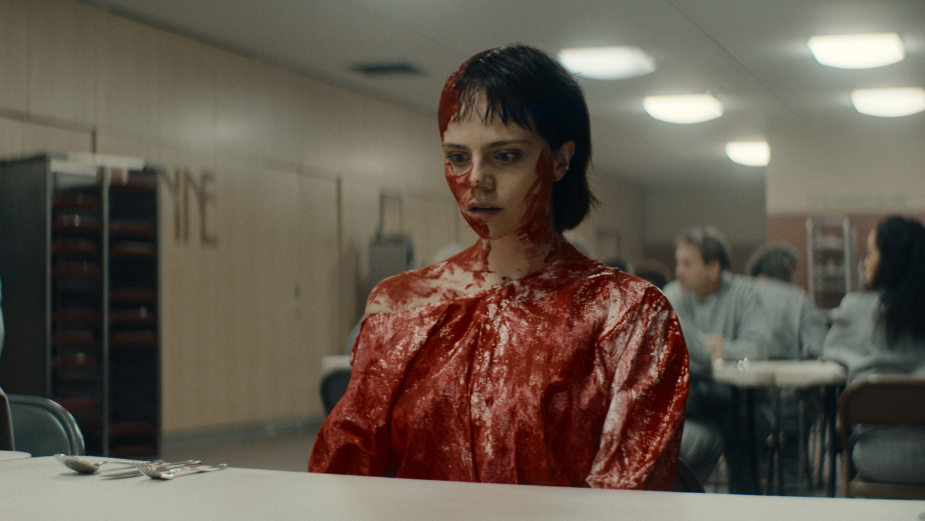
LBB> You have a focus on rhythm and structured narratives, what are some of the techniques you use to convey this style of cinematography?
Hanna Maria> It’s something I learnt along the way. I don’t consider myself to be a particularly musical person, but I realised for me that at some point, it really helps me think in a rhythm and that it's something that comes naturally to me. When I’m thinking about an idea, I immediately think about how it plays out rhythmically in my head and that helps me approach my filming projects from that angle.
In the new SOULS series, one of the actresses asked if we can do just a rhythm reading at the beginning and it was so interesting, to work with someone who also wants that structure. It’s a blessing to find a technique that works for you and perhaps works as a shortcut into projects to get a quicker result.
LBB> The new Sky series ‘SOULS’, which you worked on, has just launched. Can you tell us a little bit about what the show is about?
Hanna Maria> The series was a dream project. It’s a mind-bending psychological mystery series about love, loss and letting go. My husband Alex Eslam is the creator of it and because of our relationship – we’ve been together for 17 years – I was at the heart of the project right from the start, which makes a massive difference. Usually, when you’re hired as a director in TV, you come on board very, very late in the process and you don’t have much to decide anymore – everything has been both designed and costed. With SOULS, I was able to feedback from the very first few pages, go through the casting process with Alex together and set the tone and style of the show with him. The show is very unique and I am really proud of having been a part of it. One thing I particularly love about the show is how complex and three-dimensional the female protagonists are. I know most people like to say that series’ are character-driven, but SOULS really is.
Alex and I put so much heart into this project and I’m really excited for the world to meet its characters and go on their hopeful journey.
LBB> How did you impart your own creative flair into the show? What were some of the stylised elements you were keen to use?
Hanna Maria> Alex’s writing informed it all. He developed a very complex story with different timelines and the story is not entirely chronological in nature. We wanted it to feel very textured and real, to have the viewers be excited about a heightened sense of reality rather than making it just look slick in a commercial way. I still think it looks amazing – but in a unique way.
The other thing we spoke about is differentiating the storylines, because they’re from three different time periods. While it’s only 10 years apart, we still had to decide what we wanted to do. At the end of the day, we decided not to confuse the story by differentiating the look of the storylines, but rather to go for a cohesive feel throughout. Alex is also very rhythmical in his writing, similar to my filmmaking style so we brought that to set, and had music playing a lot and it not only set the tone for the actors, but everyone was in the same headspace on set. There’s something quite magical about that.
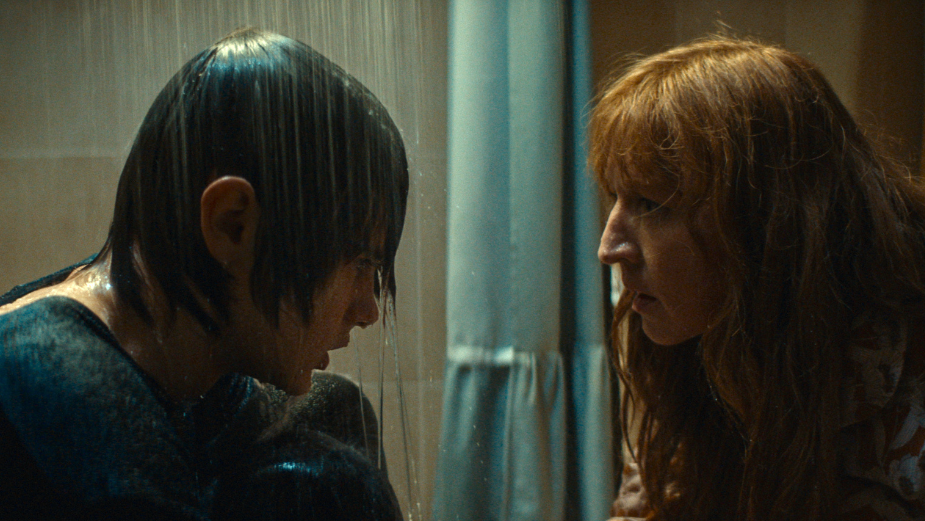
LBB> You’ve also done commercial work, some of which includes campaigns for Porsche, Sky, Ikea, Stella Artois and more. Can you tell us about how you initially approach a campaign and how it's different from longer form projects?
Hanna Maria> The beauty of commercials is that you can oversee them more easily, you can write the idea down on one page. When I’m working on a commercial, with this idea of overseeing and the sense of rhythm that we’ve spoken about, I like to create a music playlist. That helps me figure out its nuances and that’s always the starting point for me.
LBB> With your experience, you often serve on juries for film festivals. Has this had an impact on how you approach work or what you think makes a good piece of creative?
Hanna Maria> I like being in that space because I find it very inspiring to hear other people talk about the same work, and see how differently you can observe the same piece. It’s always very interesting when people from different aspects of the creative process are involved – and I’m glad that juries have finally gotten more and more diverse in the last few years. With all of the different perspectives, it’s fascinating to hear how people see the same piece of work and challenge it.
The main thing being on juries has helped me with is seeing what’s missing. Consider: ‘What is missing from this campaign?’ And, ‘What would make it a real killer piece?’
At the same time, I know the bigger the campaign gets, the more boxes they have to tick. In the last two years, I have worked more and more on car ads, also in the US. On campaigns like that, it’s a massive challenge for the creatives to get their clients to buy into the more creative scripts and to avoid generic campaigns that just try to please everyone.
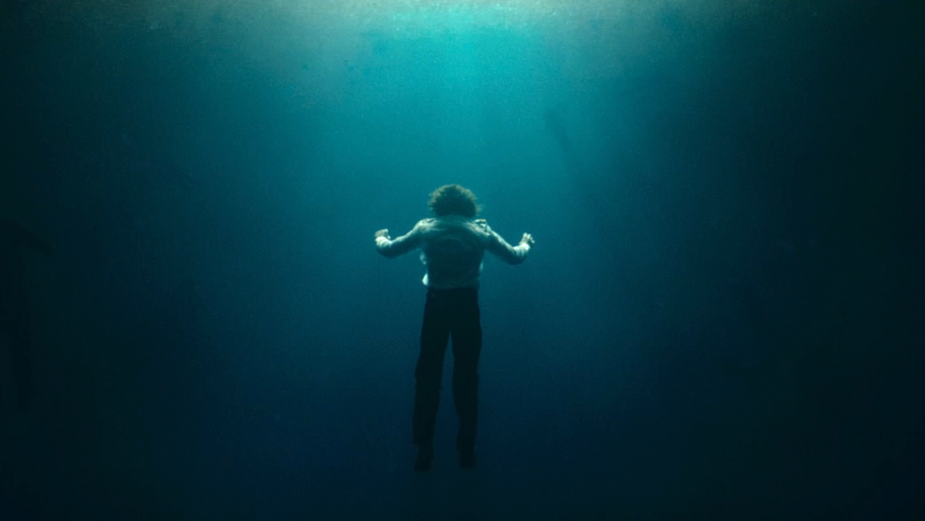
LBB> You co-founded DRCT, which is the first directors’ association for directors working in commercials in Germany. Can you share a little about that with us?
Hanna Maria> The idea for DRCT was born out of various conversations with different directors. It became increasingly apparent that directors think that our pitch culture needs to change: from unpaid labour to pitches with more than three competitors, stolen IP, rush deadlines, and unpredictable schedules. As the latest Free The Work directors census found out, a director spends an average of 33 hours on a pitch and people from marginalised groups tend to work even more hours (with lower win rates). Many directors simply can’t afford to continue pitching and newcomers at film schools are often at risk of dropping out of the industry before their careers have even started.
We started to dream about a new, fair, respectful and more transparent pitch culture so we founded DRCT, the first directors’ association for directors working in commercials and branded content in Germany to turn this change into reality. We have 180 international members now and we’re proud to have partnered up with the association of German advertising film producers to develop a concept which we presented to the association of the leading German advertising agencies, to change pitch culture.
One of the demands is that the directors who lose the pitch get paid for their contribution, or that we need to limit it to a certain number of directors pitching, to make the process fairer for everyone. At the end of the day, it’s the client who will benefit from a successful collaboration when we put the focus back on creative exchange and the quality of work. From the conversations we have had so far, everyone understands that things do need to change. I’m very excited to see that change coming and I think it is only a matter of time before it will become the new norm.
LBB> What’s next for you?
Hanna Maria> My professional highlights this year were the premiere of our show SOULS in Cannes, the release of it now and I was also happy to shoot a lot of commercials in the USA with my partner RESET, which has been great fun. Working on these big campaigns has been exciting, still, my hunger for quirky, creative scripts is always there! I’d be excited to do scripts that allow for working with actors or building a unique world. On the feature side, I am excited to create something new with Alex and tap more into the writing process myself.







